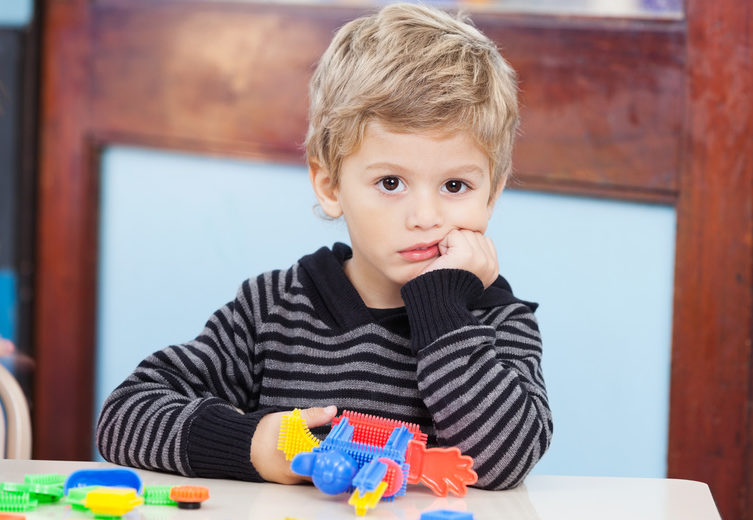Over the years, we have had a lot of parents come to us for help after an unsatisfactory experience with a prior preschool. Without a doubt, finding the right preschool is something that a lot of parents could use help with. In 2015, approximately 87% of five-year-olds in the U.S. were enrolled in such preprimary programs — but with so many preschool options available, it can be difficult to know which will be the best fit for your child.
Despite all of your best efforts, enrolling your child in a preschool program won’t necessarily mean your child will be happy there. Even if you have heard it is a good preschool program or the top preschool near you, and has some of the most trusted child care professionals on staff, there are many factors that could cause your child to become sad, frustrated, or exhibit other changes in their personality as a result.
If your child seems stressed when they come home from preschool or tell you they don’t want to go to school in the morning, particularly after the usual period of adjustment should have ended, it may be time to take a closer look at the school, your child’s teachers, and the behaviors that may be contributing to your child’s feelings. Here are some initial steps to take during this time.
1. Talk to your child
Communicating with your child should be your first step here, and it’s also one of the most important steps to take. Talk to your child in a way that expresses your understanding and compassion for their situation while being careful not to sway their feelings one way or the other. Tune in to your child’s emotions and listen to what they are really saying.
Although sometimes children are prone to fibbing, you know better than anyone whether your child is telling the truth about the situation or not. Take what they say into account along with other clues, like how your child reacts when school is mentioned, their behavior while getting ready for the day, or the phrases they might use to indicate their frustration and displeasure.
If you aren’t able to get much information out of your child, you may need to turn to other family members or advisors for additional assistance.
2. Talk to the teacher
Once you have a clearer idea of the issues your child is experiencing, it’s time to bring these concerns to the teacher and other staff members at school. Without assigning blame or passing judgment, sit down with the teacher in a one-on-one meeting where you can discuss the situation openly. The teacher may be able to give you some more insight into the situation.
If something specific is bothering your child, the teacher should address it and make it a priority. Take this time to ask questions, express worries, and come up with a plan that involves regular updates on the situation from the teacher.
3. Observe the class or escalate
If you do not see improvements in your child’s emotional state or in their behavior, you may be able to observe your child’s class to get a first-hand look at the problem. It’s best for your child not to know you are observing so you know what you’re seeing is an accurate representation of what they experience on a daily basis.
The root of the issue could be anything from problematic classmate interactions to the way material is being taught. Once you really know what’s going on, you can provide your child with additional assistance or make a decision about whether you might need help with finding the right preschool that will truly work best for your child.
If you are unable to observe your child’s class, you may want to meet with the preschool’s management to express your concerns and expand on a plan to help your child. Should you feel like you aren’t getting anywhere with your child’s teacher or other staff members, secure more help with finding the right preschool — one that can serve your child’s needs.
If you need help with finding the right preschool, you certainly aren’t alone. Although we all want that first school to be the right one, the reality is that it may not be. Here at Lily Pond, we’re here to help. By taking a more individualized approach to early education, we’ve become the preschool many Bergen County parents trust. Give us a call!




